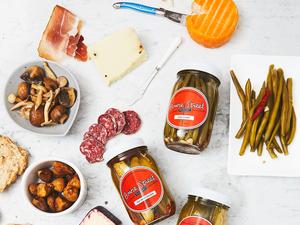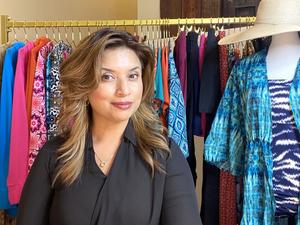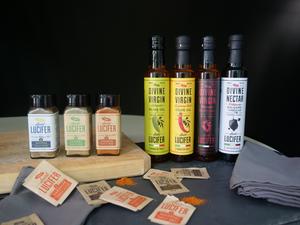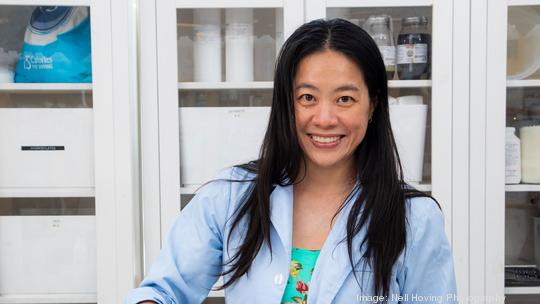
With a focus on Greater Philadelphia small businesses and entrepreneurs, "The Creators" is a weekly feature presented as a part of PHL Inno. Check back each Monday for a new profile on a local business. Have a story you think we should know about? Email associate editor Lisa Dukart at ldukart@bizjournals.com.
Growing up in Singapore, Adeline Koh never dealt with dry skin. But when she swapped the tropical environment of her homeland for harsh Michigan winters, she experienced quite a shock — one that eventually led her to launch her own business.
Studying for her doctorate at the University of Michigan, Koh quickly became frustrated with her skin. “I had never dealt with dryness in my life. I didn't know what to do,” she recalled. Like many students, she didn’t yet have the money to tackle the problem, so for the duration of her studies, she dealt with the seasonal fluctuations.
Landing a professorship at Stockton University in New Jersey, Koh moved east, deciding to call Philadelphia home. Seeking the advice of a dermatologist, frustration continued to plague her when Koh was told “all moisturizers are a scam,” she recalled.
Discovering Korean beauty in 2015, things started to change for the better. “The whole concept of Korean beauty really resonated with me because it uses a lot of Asian botanical ingredients as the star ingredients in their lines, like ginseng,” Koh said, noting that her mother and grandmother used such ingredients in their cooking.
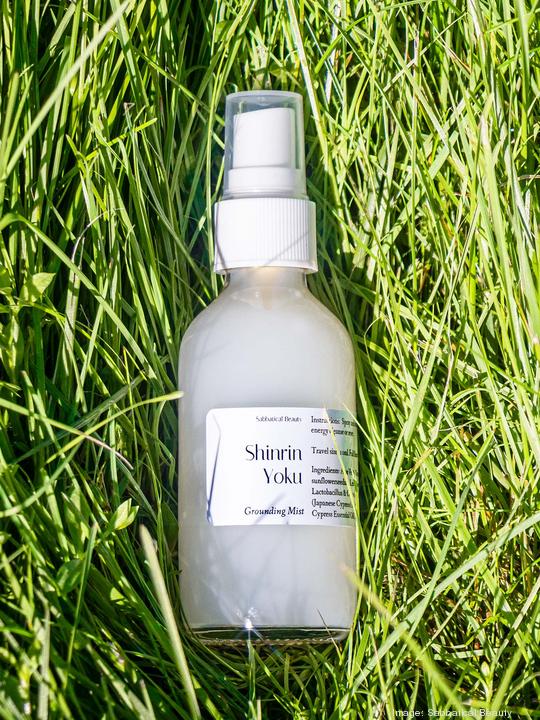
Deciding to further research skincare, she found that even brands with “hero ingredients” weren’t making significant use of them.
“It's not actually a high enough percentage to really see whether the botanical will work for you,” Koh said. When she took a sabbatical from teaching, Koh bought a chemistry set and began creating her own formulas, favoring botanical ingredients. With the new products, her skin dramatically improved and soon friends and colleagues were encouraging Koh to launch her own business, and the aptly named Sabbatical Beauty was born in early 2016. Still, she was unsure if it would go anywhere.
But it did and by 2017, she left her professorship to pursue Sabbatical Beauty full-time.
Her first product, Marine Serum, remains a top seller today. It and many other products were designed “around a concept or ingredient,” Koh said.
The first focused on fermented sea kelp. “Everything from the deep ocean is very, very good for you,” she said. Her second harkened back to her childhood. Called Asian Powerhouse Serum, Koh likens it to “my grandmother’s soup on my face,” she said. “It has ginseng, goji berry, turmeric, all these Asian herbs and spices that are normally cooked with.”
Since those first two products, Sabbatical Beauty has dramatically expanded and now Koh makes about 30 core products which range from serums and sheet masks to toners and moisturizers. She also creates seasonal lines that collectively add an additional 15 products, though Koh hopes to scale them back in the future.
All of the products are handmade in the Sabbatical Beauty laboratory located within the Bok Building. While Koh relies on her robust online sales, customers can test and shop products at the South Philadelphia storefront.
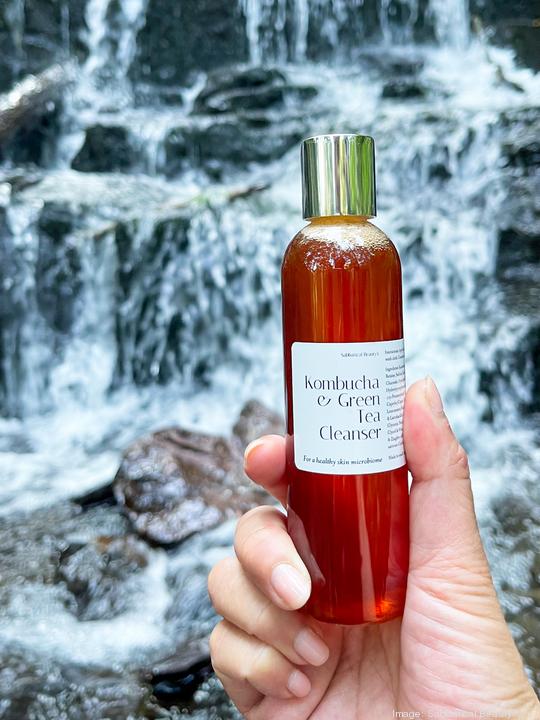
Despite the pandemic, Koh said her business was up about 20% last year compared with 2019. She declined to share the company's revenue, but credits the increase in part to the increased focus on self-care and wellbeing that arose as a result of the pandemic. In 2020, she sold a total of 18,000 units of her products, success she’s looking to build on as she continues to grow.
A visual rebrand is in the works for next year, with the goal of achieving a more consistent look across products. Regardless of the look, Koh will remain true to her mission of creating products that nourish not just the skin but also social good.
How does Korean beauty differ from American skincare?
The big difference, I think, is that American beauty products in general can be on the harsher side, because there's a lot of emphasis on exfoliant. With exfoliation, you're taking off the top layer of dead skin cells. And what that does is it helps hyperpigmentation, it helps scarring, it helps oil control, it helps you to look younger. But exfoliation can also be very harsh because you're basically ripping off a layer of your skin. In general, I find that Western beauty focuses on quick results but not necessarily nourishing the skin. Western beauty is [about getting] results really quickly and so you kind of punish your skin to get it.
What are the fundamentals of a Korean skincare routine?
The whole 10-step regimen, I describe it to a lot of people as if it's wintertime. It's the difference between going out in a thick, heavy, puffy jacket, like a very heavy moisturizer, or 10 layers of different hydrating serums and lotions and toners that all give you different layers of warmth and hydration and healing to your skin. There's room for both, but the nice thing about the layers is that I think Korean beauty tries to empower the user. You can pick and choose according to what your skin is telling you.
How has the pandemic impacted business?
In terms of supply chain, a lot and I'm continuing to have them because we're still having lots of supply chain issues globally. There's a worldwide glass shortage. I'm having problems getting one of my containers. There's ingredient issues, like some of my functional ingredients that I use to thicken a product or preserve a product. And everything has gone up, shipping costs have gone up tremendously, so I had to increase my prices earlier this year.
Part of your brand is focused on social justice. Why was that an important aspect of your business?
I started making my own beauty products because I was trying to make myself feel better. When I make my products now, I'm also trying to make other people feel better, feel more beautiful, not because they have to meet a certain standard, but because they are trying to take time for themselves to feel better. I think that the progressiveness of the brand values are very much tied to this. One of the quotes that is most often talked about when people talk about how self-care is … by the activist or Audrey Lorde, where she talks about how self-care is a political act, especially if you are not in the body of a white man. Women especially were taught to not take care of ourselves because you have to take care of other people, but nobody then takes care of the women. When Audrey Lorde says that self-care is a political act, especially for women of color, it's because we have never been taken care of and when we are taken care of and we take care of ourselves, we actually get a lot stronger, and we can change political things when we are stronger.
